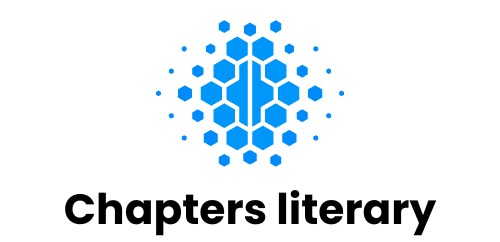How Can Smartphone Health Apps Influence Medication Adherence in Hypertensive Patients?

In an era where technology continues to rapidly evolve and become integral to our daily lives, smartphone health apps have emerged as a revolutionary tool in healthcare management. These apps play a crucial role in providing patients and healthcare professionals with a wealth of real-time health-related data, ensuring more efficient and effective treatment approaches. This article will delve into how these innovative tools are specifically influencing medication adherence among hypertensive patients.
The Importance of Medication Adherence in Hypertensive Patients
Before we delve into the influence of smartphone health apps, it’s crucial to understand the role of medication adherence in the management of hypertension. Hypertension, also referred to as high blood pressure, is a chronic condition that requires long-term management and treatment to prevent potential complications.
Additional reading : What Are the Impacts of Nutrient Timing Around Exercise on Muscle Recovery and Growth?
Unfortunately, medication adherence — the degree to which patients follow their prescribed treatment plan — is often suboptimal among hypertensive patients. Nonadherence can lead to poor blood pressure control, increasing the risk of cardiovascular events, stroke, heart failure, and premature death. Hence, strategies to enhance medication adherence are crucial, and smartphone health apps emerge as a promising solution.
Analyzing the Benefits of Health Apps in Medication Adherence
Health apps work by providing a platform for patients to record and monitor their health data, manage their medication schedules, and communicate with their healthcare providers. When it comes to managing hypertension, these apps can be a game-changer.
Also read : How Can Virtual Group Fitness Classes Improve Access to Exercise for Remote Workers?
According to a study published in the journal CrossRef, patients who used a smartphone app to manage their hypertension showed improved medication adherence compared to the control group. The intervention group reported higher levels of satisfaction with their care and a greater sense of control over their health.
Moreover, the real-time data provided by these apps, such as blood pressure readings and medication intake logs, can be shared with healthcare providers. This allows for an ongoing analysis of the patient’s condition, enabling healthcare professionals to adjust treatment plans as needed.
The Role of Health Apps in Encouraging Patient Engagement
Another significant factor contributing to the success of health apps in improving medication adherence is their role in fostering patient engagement. Health apps offer features that empower patients to actively participate in their care, such as medication reminders, educational materials about their condition, and easy access to their health records.
These features enhance patients’ understanding of their condition and the importance of their medication, which in turn promotes adherence. With the data from these apps, patients can see the direct impact of their medication on their blood pressure, reinforcing the benefits of medication adherence.
Ensuring the Success of Smartphone Interventions for Medication Adherence
While the potential of health apps in improving medication adherence is promising, their success is contingent on several factors. First, patients must be willing to adopt the technology. This is where user-friendly design and a simple interface come into play. Moreover, healthcare providers must be adept at interpreting the data from these apps and incorporating this information into their patients’ care plans.
Additionally, it’s crucial to bear in mind that while smartphone apps can aid in medication adherence, they are not a standalone solution. These tools should be used as part of a comprehensive approach that includes patient education, frequent follow-ups, and regular blood pressure monitoring, to ensure optimal hypertension control.
The Future of Smartphone Health Apps in Hypertension Management
Looking ahead, it’s clear that smartphone health apps hold great potential in the realm of hypertension management. With advancements in technology, these apps are likely to become increasingly sophisticated, offering more detailed and personalized data analysis.
Furthermore, as virtual care becomes more commonplace, these apps can facilitate seamless communication between patients and healthcare providers, ensuring continuous and coordinated care.
In the end, it’s clear that smartphone health apps are reshaping the landscape of healthcare, offering innovative solutions to age-old challenges. Their use in improving medication adherence among hypertensive patients is just one example of how this technology is revolutionizing patient care and health outcomes.
Advantages and Limitations of Smartphone Health Apps in Hypertension Management
Given the growing ubiquity of smartphones, the utilization of health apps as a tool for improving medication adherence has been on the rise. This section will further explore the advantages and limitations of these apps in the management of hypertension.
One of the main advantages of smartphone health apps is the convenience they offer. Patients can easily keep track of their medication schedules and blood pressure readings, making it easier for them to adhere to their treatment plans. Moreover, the easy accessibility of these apps allows patients to engage with their healthcare providers, facilitating an open dialogue about their condition and treatment.
Recent studies, such as the one published in the Journal of Medical Internet Research (JMIR) mHealth and uHealth, corroborate the effectiveness of these apps. The research found a significant improvement in medication adherence among hypertensive patients who used a smartphone app, compared to the control group.
However, there are some limitations to consider. For instance, the adoption of smartphone health apps may be a challenge for older adults who are less familiar with technology. Furthermore, while the apps can facilitate patient-provider communication, they can’t replace face-to-face consultations. As such, these apps should be integrated into a more holistic approach to hypertension management that includes regular check-ups and lifestyle modifications.
Conclusion: Smartphone Health Apps – A Step Forward in Hypertension Management
In conclusion, smartphone health apps are demonstrating their potential as tools for improving medication adherence in hypertensive patients. They allow patients to take an active role in managing their health, provide real-time health data to healthcare professionals, and encourage a more interactive patient-provider relationship.
However, while these apps show promise, they are not without limitations. The successful implementation of these tools depends on factors such as patient willingness to adopt the technology, the ability of healthcare providers to interpret and utilize the data, and the incorporation of these apps into broader hypertension management strategies.
Future research, including more systematic reviews and meta-analyses, is needed to fully understand the impact of smartphone health apps on hypertension management. Furthermore, healthcare professionals should be trained to effectively use these tools in their practice and patients should be educated about the benefits of these apps.
Nonetheless, the advent of smartphone health apps marks a significant step forward in healthcare technology. As we move into a new era of digital health, these apps will continue to play a pivotal role in shaping the future of hypertension management.
